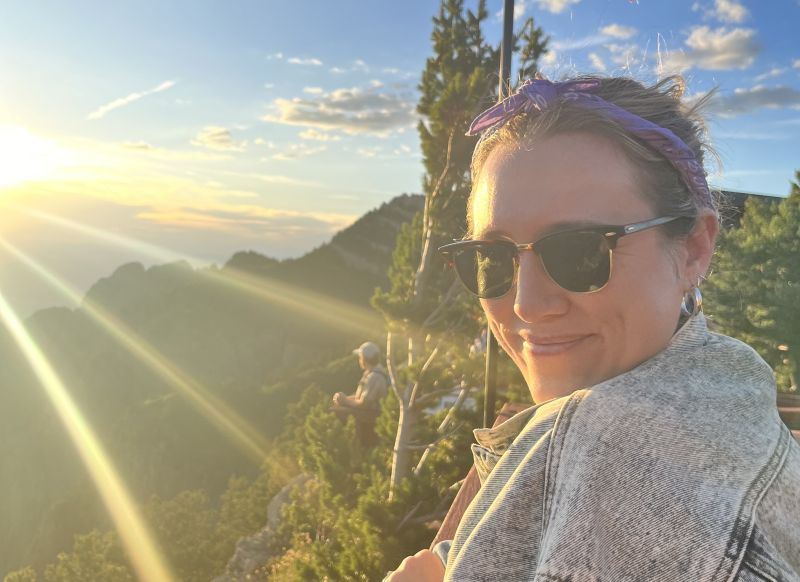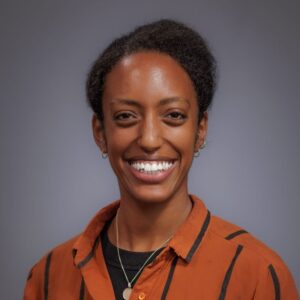What inspired you to join Project ECHO?
I joined ECHO as a graduate student. I was looking for extra work while writing my dissertation. I read about Project ECHO and immediately “got it,” because I spent about five years doing training-of-trainer interventions, focused on chemical and biological weapons nonproliferation, with Sandia National Laboratories [a U.S. Department of Energy research and development facility]. We would prepare three to four-day intensive trainings for folks that worked in labs and academic centers all around the world, but mostly in lower- and middle-income countries. This idea of linking specialists with people who need new knowledge and need to spread new knowledge was very intuitive for me.
At ECHO, I found a home in working with people who are academically trained but are more interested in applying knowledge immediately. So, not so much of that delayed research process, where you work for four years on a paper and it’ll take maybe five years for anybody to read it. You can see ECHO’s direct impact immediately. On the research team, we hear from the people who are doing the work; it doesn’t feel disconnected.
I found my sweet spot at ECHO: I get to learn new things about all sorts of different areas all the time and play a role in making an impact.
How does your background prepare you for this role?
During graduate school at The University of New Mexico, I spent a lot of time engaging with students from all over the state. I heard about their lives and their backgrounds and understood a little bit more about the New Mexico context. I also had this experience of democratizing access to knowledge. Teaching was a natural fit for me — to understand that you have a population that needs to know something, to think about how we teach in an effective way, and to engage students as active participants.
By training, I’m a researcher. I ask questions and come up with a creative strategy to answer those questions. For my role at ECHO, that’s what I do every day.
What’s one moment at ECHO you’re especially proud of?
I’m particularly proud of the MetaECHO Conference in 2019. I worked with our partners to create a day focused on research. We highlighted researchers as sources of expertise within the movement. Any time I get to engage with our partners is a highlight for me.
What excites you most about the future of ECHO?
How we can leverage the ECHO network and movement to work on the more complicated problems of our time and to address emerging issues. We’re working with our partners to prevent infectious diseases in lower- and middle- income countries, respond to conflict situations, and get first responders up-to-speed on best practices in trauma care.
There’s something really powerful about using this network of people to address immediate needs.
What do you enjoy outside of work?
I’m an outdoor person, and I’m a big rock climber. I really enjoy hitting the wall and not thinking about anything except for how to get to the top. I also spend time with my husband, dog and cat. I watch live music and listen to most genres, from trance to pop, from metal to folk music.
For more information about Jess Jones, Ph.D., visit her LinkedIn profile. The REDI team also tracks Project ECHO’s research publications through this database.
Featured Image: Jones stands on Sandia Peak, in Albuquerque, NM. Photo Credit: Colin Henry, August 2024.


